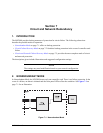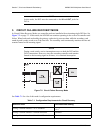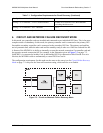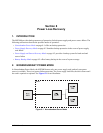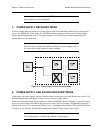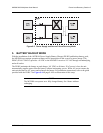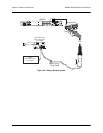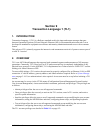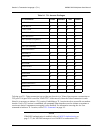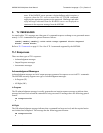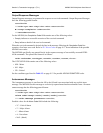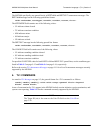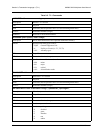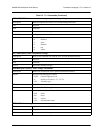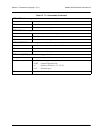
61200290L1-1G 9-1
SECTION 9, TRANSACTION LANGUAGE 1 (TL1)
Section 9
Transaction Language 1 (TL1)
1. INTRODUCTION
Transaction Language 1 (TL1) is a Bellcore standard used in the input and output messages that pass
between Operations Systems (OS) and Network Elements (NE) in telecommunication networks. It was
developed to standardize equipment surveillance and memory administration and to test with a common
format.
This release of TL1 primarily supports the interactive and autonomous retrieval of system events as part of
a valid TL1 session.
2. OVERVIEW
TL1 is an ASCII-based language that supports both command-response and autonomous (NE) message
generation. Commonly, TL1 is used over an X.25 packet network but is completely independent of any
physical layer protocols. For the MX2800, TL1 is implemented as a Telnet session or “RAW TCP” session
running over either Ethernet or PPP.
To successfully initiate a TL1 session, the unit must be properly configured for an Ethernet (LAN) or PPP
connection. A valid IP address, gateway address, and subnet mask are required. Refer to System Manage-
ment on page 3-16. User authentication is also required. An account must be set up before initiating a TL1
session.
An account may be set up via the VT100 menus (Configuration/System Management/System Security/
User Account Management.) An account includes a username, password, and privileges. The privileges are
as follows:
• Admin privileges allow the user to use all supported commands.
• Guest privileges allow the user only to activate the TL1 session, cancel a TL1 session, and retrieve
specific system information.
• Interface privileges allow the user to use all supported commands except modifying the user account
information, setting the MX2800 date and time, configuring alarm relays, and operating loopbacks.
• Test privileges allow the user to use all supported commands except modifying the user account
information, configuring alarm relays, and setting the MX2800 date and time.
The TL1 account privileges are detailed in Table 9-1 on page 9-2.



